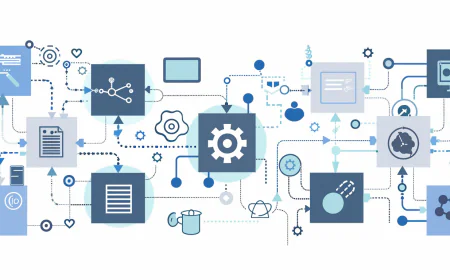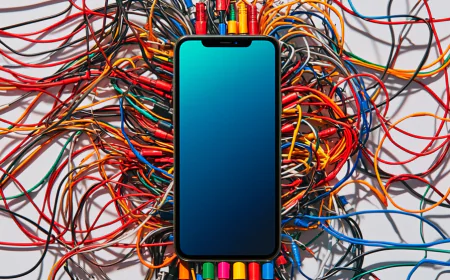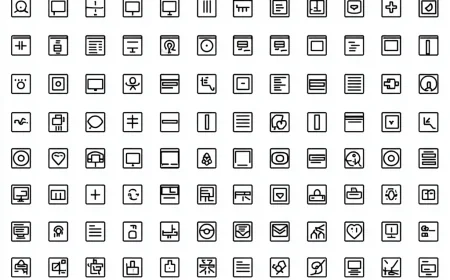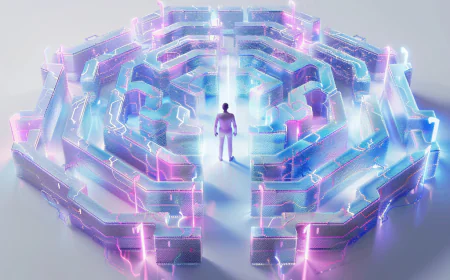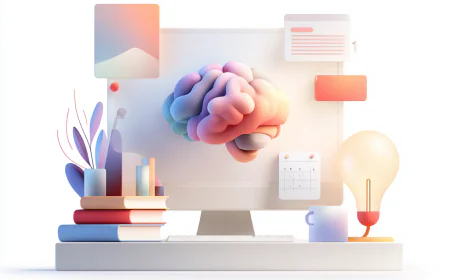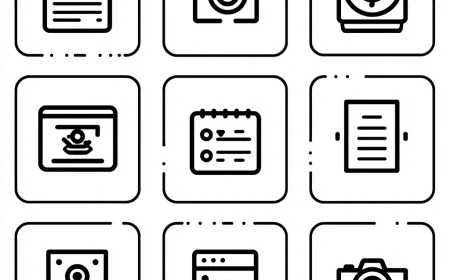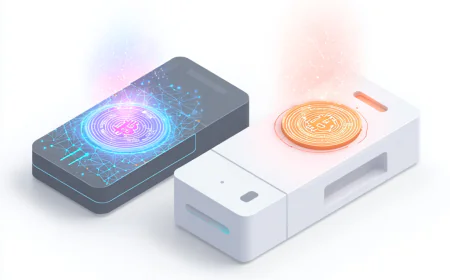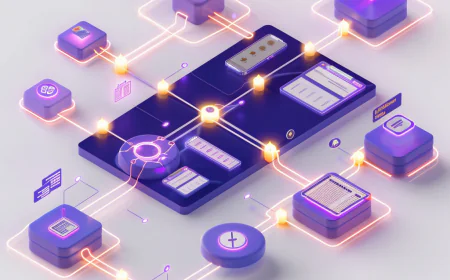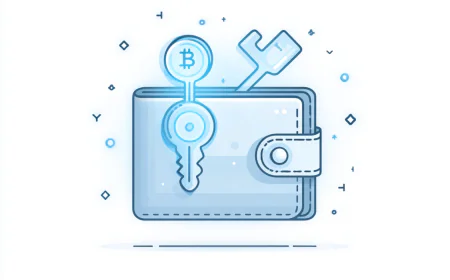# 7 Simple Habits That Will Transform Your Life in 30 Days
Transform your life in 30 days with 7 science-backed habits for better energy, productivity, and happiness. Comprehensive guide to building habits like early waking, exercise, hydration, gratitude, reading, digital detox, and planning. Includes implementation strategies, science, and success stories.
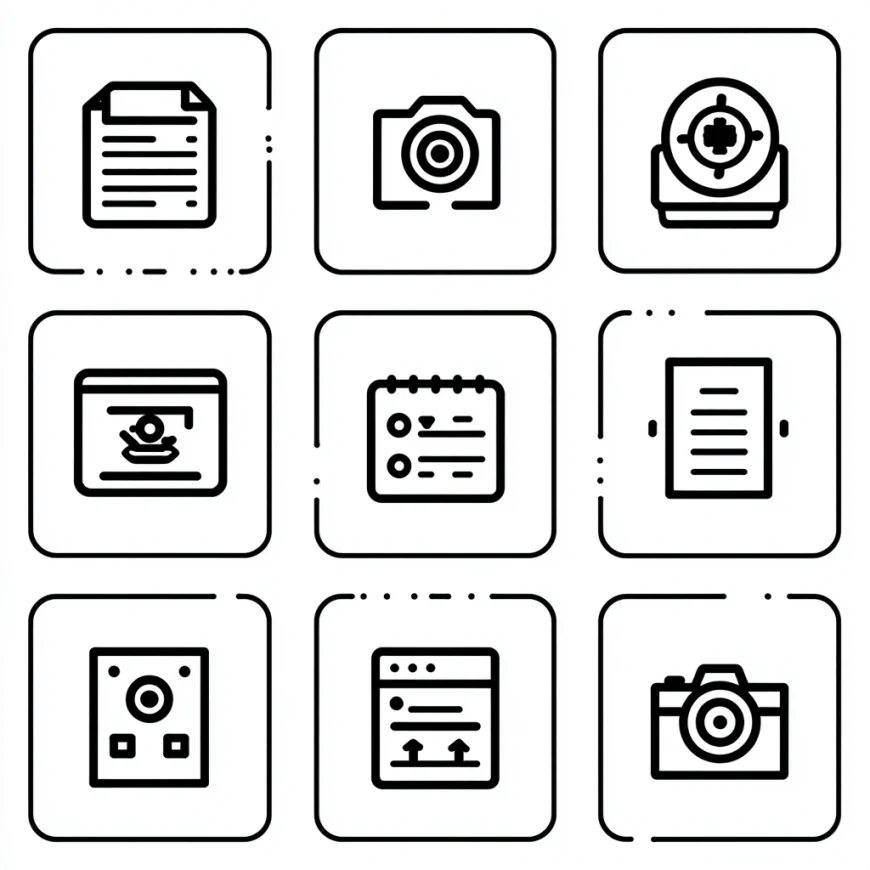
7 Simple Habits That Will Transform Your Life in 30 Days
Reading Time: 15 minutes | Last Updated: October 2025
📋 Legal Disclaimer
The information provided in this article is for educational and informational purposes only. It does not constitute medical, psychological, health, wellness, or professional advice of any kind. The author and publisher are not responsible for any actions taken based on this information. Before making any significant changes to your lifestyle, diet, exercise routine, or mental health practices, please consult with qualified healthcare professionals. Individual results may vary, and outcomes are not guaranteed. The habits described in this article may not be suitable for everyone, and readers should use their own judgment and seek professional guidance when appropriate.
Introduction: The Science of Transformation
We often dream of massive life changes—new careers, relationships, bodies, or bank accounts. Yet we wait for the perfect moment, the right motivation, or some external catalyst to finally make it happen. But here's what science has proven: transformation doesn't come from dramatic overhauls; it comes from small, consistent actions repeated daily.
According to research, up to 40% of our daily actions are based on habits rather than conscious decisions. This means that by strategically building the right habits, you can literally reprogram your life on autopilot.
The 30-day timeframe isn't arbitrary. While the old myth suggested it takes 21 days to form a habit, modern research shows the average is closer to 66 days. However, 30 days is long enough to see significant results while being short enough to maintain intense focus and commitment. It's the sweet spot for momentum building.
In this comprehensive guide, I'll share seven scientifically-backed habits that, when practiced consistently for just 30 days, will create measurable improvements in your energy, productivity, mental clarity, relationships, and overall life satisfaction.
These aren't complex techniques requiring expensive tools or massive time investments. They're simple, accessible practices that anyone can implement starting today—regardless of age, fitness level, or current circumstances.
The promise: If you genuinely commit to these seven habits for 30 consecutive days, you will not recognize your former self by day 31. Your mornings will be different. Your energy levels will be different. Your mental state will be different. Your productivity will be different.
Are you ready? Let's begin.
The Psychology Behind Habit Formation
Before diving into the seven habits, let's understand why they work.
The Habit Loop
Every habit consists of three components:
- Cue: The trigger that initiates the behavior
- Routine: The behavior itself
- Reward: The benefit your brain receives
When you repeat this loop consistently, your brain creates neural pathways that make the behavior increasingly automatic. Initially, the action requires conscious effort and willpower. But after repetition, it becomes as natural as breathing.
The 30-Day Commitment
Research shows that committing to a specific timeframe dramatically increases success rates. When you tell yourself "I'll do this forever," your brain rebels. But "I can do anything for 30 days" feels achievable, creating psychological buy-in.
Additionally, within 30 days, you'll experience enough positive results to want to continue naturally. The habit stops being something you have to do and becomes something you want to do.
The Compound Effect
Small improvements compound over time. A 1% improvement each day means you're 37 times better after one year. These seven habits create multiple 1% improvements simultaneously, leading to exponential growth in your overall life quality.
Habit #1: Wake Up at 5:30 AM (The Miracle Morning)
Why It Transforms Your Life
Waking up early isn't about sleeping less—it's about owning your morning before the world demands your attention. Research shows that early risers report higher levels of productivity, proactivity, and life satisfaction compared to late risers.
The secret isn't the specific time; it's having sacred, uninterrupted hours dedicated entirely to yourself before emails, notifications, and other people's agendas take over your day.
The Science
Your cortisol levels (the hormone that makes you alert) naturally peak in the morning. Your willpower is strongest. Your ability to focus is highest. By tackling meaningful activities early, you capitalize on your brain's optimal performance window.
Studies indicate that individuals who maintain consistent wake times have better sleep quality overall, even if they're waking earlier than before. The consistency matters more than the quantity.
How to Implement (Even If You're Not a Morning Person)
Week 1: Preparation Phase
- Night before: Lay out workout clothes, prepare coffee setup, charge phone in another room
- Set bedtime alarm: Work backward from 5:30 AM to ensure 7-8 hours of sleep
- Create evening routine: No screens 30 minutes before bed, dim lights, cooler room temperature (65-68°F optimal)
- Place alarm across the room: Forces you to physically get up to turn it off
Week 2: Adjustment Phase
- Expect grogginess: Completely normal for the first 7-10 days
- Immediate actions upon waking:
- Drink 16 oz water immediately (keeps by bedside)
- Open blinds/turn on bright lights (signals brain it's daytime)
- Do 10 jumping jacks or push-ups (increases heart rate, alertness)
- No snoozing ever: This trains your brain that the alarm means business
Week 3-4: Optimization Phase
- You'll start waking naturally: Your body clock adjusts
- Evening tired feeling: You'll naturally want to sleep earlier
- Energy throughout day: No more 2 PM crashes
What to Do With Your Morning (The "Miracle Morning" Framework)
5:30-5:45 AM: Silence (Meditation)
- Sit quietly, focus on breath
- Use free apps: Insight Timer, UCLA Mindful
- Even 10 minutes reduces cortisol, increases focus
5:45-6:00 AM: Affirmations
- Read your written goals and affirmations aloud
- Visualize your ideal day
- Sets positive mental framework
6:00-6:30 AM: Exercise
- Can be yoga, running, bodyweight workout
- Releases endorphins, increases energy for entire day
- Detailed in Habit #2
6:30-7:00 AM: Reading
- Non-fiction, educational content
- 15-20 pages per day = 25-30 books per year
- Morning reading has 60% better retention than evening
7:00-7:30 AM: Journaling
- Gratitude list (3 things)
- Daily intentions (top 3 priorities)
- Free-form thoughts
Expected Results After 30 Days
- Days 1-7: Challenging, but proud of yourself
- Days 8-14: Slightly easier, noticing sharper morning focus
- Days 15-21: Body adjusting, naturally tired earlier in evening
- Days 22-30: Waking up feels natural, mornings are your favorite part of day
- Overall transformation: 2-3 hours of productive time added to each day, greater sense of control over your life, increased energy levels
Real Success Story
"I was always a night owl who hit snooze 5 times every morning. I started the 5:30 AM routine skeptically. Week 1 was torture, I won't lie. But by week 3, something clicked. I'd wake up naturally at 5:25 AM, excited for my morning routine. I wrote my first book during those early morning hours, exercised consistently for the first time in years, and felt like I'd unlocked a cheat code to life. Six months later, I've never slept past 6 AM, even on weekends—because I genuinely don't want to."
— Jessica, 34, Marketing Manager
Habit #2: Move Your Body for 30 Minutes Daily
Why It Transforms Your Life
Exercise isn't just about physical health or aesthetics—it's the most powerful antidepressant, focus enhancer, and energy booster available. Research consistently shows that regular physical activity improves mood, cognitive function, sleep quality, and overall life satisfaction more effectively than any other single intervention.
The World Health Organization reports that physical inactivity is the fourth leading risk factor for global mortality. Conversely, just 30 minutes of moderate exercise daily can reduce your risk of chronic diseases by up to 50%.
The Science
When you exercise, your brain releases:
- Endorphins: Natural painkillers and mood elevators
- Dopamine: Motivation and reward chemical
- Serotonin: Mood stabilizer and happiness chemical
- BDNF (Brain-Derived Neurotrophic Factor): Promotes new neural connections, literally making you smarter
Studies show that regular exercise increases hippocampal volume (memory center), improves executive function, and may reduce dementia risk by up to 30%. It's not just a body workout—it's a brain upgrade.
How to Implement (No Gym Required)
The key isn't intensity or complexity—it's consistency. You're building a habit, not training for the Olympics.
Week 1: Start Ridiculously Easy
- Choose ONE activity you actually enjoy:
- Brisk walking
- Dancing to favorite songs
- YouTube workout videos
- Cycling
- Swimming
- Jump rope
- Bodyweight exercises (push-ups, squats, lunges)
- Set the bar LOW: Your only goal is to move for 30 minutes. If you can only do 15 minutes initially, that's perfect. Build up gradually.
- Schedule it non-negotiably: Treat it like a doctor's appointment. Same time daily.
Week 2: Establish Triggers
- Link to existing habit: "After I drink my morning water, I exercise" or "After I brush my teeth at night, I take a walk"
- Prepare environment: Lay out workout clothes the night before
- Remove friction: If you're walking, shoes by the door. If you're doing videos, bookmark your favorite channel.
Week 3: Increase Intensity Slightly
- If walking, add hills or increase pace
- If doing bodyweight exercises, add 2-3 more reps
- Try one new activity for variety
- Your body adapts; progressive challenge prevents plateaus
Week 4: Solidify the Identity
- You're no longer "someone trying to exercise"—you're "someone who exercises daily"
- This identity shift is crucial for long-term adherence
- Notice how your energy levels have transformed
Free Workout Resources
YouTube Channels:
- Fitness Blender (all levels, no equipment)
- Yoga With Adriene (beginner-friendly)
- POPSUGAR Fitness (fun, energetic)
- HASfit (low-impact options)
Apps:
- Nike Training Club (free, comprehensive)
- Down Dog (yoga, HIIT, barre)
- Couch to 5K (perfect for beginner runners)
- 7 Minute Workout (science-based, quick)
Expected Results After 30 Days
- Energy levels: 40-60% increase in perceived daily energy
- Sleep quality: Fall asleep faster, deeper sleep cycles
- Mood: Noticeable reduction in anxiety and stress
- Physical changes: Some weight loss, increased muscle tone, better posture
- Mental clarity: Sharper focus, better problem-solving
- Confidence: Pride from keeping commitment to yourself
Overcoming Common Obstacles
"I don't have time."
You have time for what you prioritize. You're finding 30 minutes—probably spending more time scrolling social media. Track your screen time for one day; you'll find the time.
"I'm too tired."
Exercise creates energy. Start with just 10 minutes. You'll rarely stop at 10 once you've started. Motion creates motivation, not the other way around.
"I'm too out of shape."
Perfect! Everyone who's now in shape was once out of shape. Walking counts. Gentle yoga counts. You're not competing with anyone.
"I hate exercise."
You haven't found your movement yet. Try different activities. Put on favorite music and dance. Walk while listening to podcasts. Exercise doesn't have to look like traditional workouts.
Habit #3: Drink 3 Liters of Water Daily
Why It Transforms Your Life
Chronic mild dehydration is epidemic in modern society—and most people don't even realize they're dehydrated. Research shows that even 1-2% dehydration impairs cognitive performance, mood, and physical energy.
Your body is approximately 60% water. Your brain is 75% water. Every single cellular process requires water. When you're properly hydrated, everything functions better: digestion, circulation, temperature regulation, toxin elimination, nutrient absorption, and brain function.
The Science
Studies demonstrate that proper hydration:
- Increases productivity by up to 14%
- Improves short-term memory by 15-20%
- Reduces fatigue and headaches by 30-40%
- Enhances physical performance by 25%
- Supports weight management (often, we mistake thirst for hunger)
Your kidneys process about 180 liters of blood daily, filtering out waste. Without adequate water, this process becomes less efficient, leaving you feeling sluggish and foggy.
How to Implement
Calculate Your Target:
- Basic guideline: 3 liters (approximately 100 oz) for men, 2.2 liters (75 oz) for women
- More if you exercise heavily or live in hot climates
- Include herbal tea and water-rich foods; exclude caffeinated beverages (they're diuretic)
Week 1: Tracking and Awareness
- Get a large water bottle: 32 oz or 1 liter size (means filling only 3 times daily)
- Download tracker app: WaterMinder, MyWater, or simple phone reminder
- Set hourly reminders: Especially in beginning when habit isn't automatic
- Current baseline: Track how much you naturally drink now without trying
Week 2: Strategic Timing
- Upon waking: 16-20 oz immediately (keeps by bedside)
- Rehydrates after 7-8 hours without water
- Jump-starts metabolism
- Helps with morning grogginess
- Before each meal: 8-12 oz, 20 minutes prior
- Aids digestion
- Reduces overeating (stomach sends fullness signals)
- During exercise: 7-10 oz every 15-20 minutes
- Evening cutoff: Stop heavy drinking 2 hours before bed to avoid nighttime bathroom trips
Week 3: Flavor and Variety
If plain water feels boring:
- Add lemon, lime, cucumber, or berries
- Herbal teas count (rooibos, chamomile, peppermint)
- Infused water (let fruits sit overnight)
- Sparkling water (no artificial sweeteners)
Week 4: Automatic Integration
- Water is now always within reach
- You drink without thinking about it
- Your body starts naturally craving water
- You notice when you haven't drunk enough
Expected Results After 30 Days
- Skin: Clearer, more radiant, fewer breakouts
- Energy: Sustained throughout day, fewer crashes
- Digestion: More regular, less bloating
- Focus: Noticeably sharper mental clarity
- Headaches: Dramatic reduction or elimination
- Weight: Possible 2-5 lb loss from reduced water retention and less snacking
- Athletic performance: Improved endurance and recovery
Tracking Made Easy
Visual Methods:
- Place 3 rubber bands around your bottle; move one to bottom each time you finish
- Use water tracking apps with friendly reminders
- Fill multiple bottles in morning; goal is to finish all by evening
- Use bottles with time markers ("Drink to here by 10 AM")
Common Mistakes to Avoid
Drinking it all at once: Your body can only absorb about 1 liter per hour. Spread intake throughout the day.
Drinking too much: Yes, overhydration exists. Stick to the 3-liter guideline unless you're an extreme athlete.
Forgetting electrolytes: If exercising intensely or in heat, add pinch of sea salt or coconut water for electrolytes.
Habit #4: Practice Daily Gratitude (5 Minutes)
Why It Transforms Your Life
Gratitude is arguably the most powerful psychological tool for increasing happiness and life satisfaction. Research in positive psychology consistently shows that people who regularly practice gratitude experience higher levels of positive emotions, better sleep, more compassion, stronger immune systems, and greater overall well-being.
What makes gratitude transformative isn't just feeling thankful—it's the deliberate practice of noticing what's good in your life, which literally rewires your brain to scan for positives rather than threats and negatives.
The Science
Our brains evolved with a "negativity bias"—we naturally focus on threats and problems for survival. This served our ancestors well but makes modern humans anxious, stressed, and dissatisfied despite living in unprecedented comfort and safety.
Neuroscience research shows that regular gratitude practice:
- Increases activity in the prefrontal cortex (rational thinking, emotional regulation)
- Activates the hypothalamus (regulates stress)
- Triggers dopamine and serotonin release (happiness chemicals)
- Strengthens neural pathways associated with positive thinking
A landmark study found that writing gratitude letters increased happiness scores by 10% and reduced depression symptoms by 35%. These effects lasted for months after the practice ended.
How to Implement
Week 1: Morning Gratitude Journaling
- Duration: 5 minutes immediately after waking (or during morning routine)
- Format: Write three specific things you're grateful for
- Key: Be SPECIFIC, not generic
- ❌ "I'm grateful for my family"
- ✅ "I'm grateful my sister called last night just to check in, which made me feel loved and connected"
Why specificity matters: Generic gratitude doesn't activate the same emotional response. The more vivid and detailed, the more your brain experiences the positive emotion.
Week 2: Evening Reflection
- Before bed: Recall three good things that happened today
- Include why they happened: "I had a great conversation with my colleague because I asked about her weekend"
- This practice: Improves sleep quality and trains brain to notice positives during the day
Week 3: Gratitude for Challenges
- Advanced practice: Find gratitude even in difficulties
- "I'm grateful for the project delay because it gave me time to improve my proposal"
- "I'm grateful for my injury because it taught me to listen to my body"
- This reframes problems: From purely negative to growth opportunities
Week 4: Gratitude Expression
- One person per week: Write a text, email, or letter expressing appreciation
- "Hey [name], I was just thinking about how much your advice last month helped me. Thank you for always being thoughtful and supportive."
- This practice: Strengthens relationships and creates reciprocal positivity
Gratitude Journal Prompts
When stuck:
- What made me smile today?
- Who made my life easier recently?
- What's a simple pleasure I often overlook? (hot shower, comfortable bed, morning coffee)
- What ability or skill am I glad I have?
- What in nature am I grateful for?
- What technology makes my life better?
- What challenge taught me something valuable?
- What's working well in my life right now?
Expected Results After 30 Days
- Mood baseline: Noticeably elevated happiness "set point"
- Resilience: Challenges feel more manageable
- Relationships: Improved quality; you appreciate people more openly
- Sleep: Fall asleep faster, more peaceful mental state at bedtime
- Perspective shifts: Notice positives automatically throughout day
- Reduced anxiety: Less rumination on problems
- Increased optimism: More hopeful about future
Real Success Story
"I started gratitude journaling skeptically—it seemed too simple to matter. But after two weeks, my wife asked if I'd started taking medication because I seemed so much calmer and happier. I wasn't; I'd just been writing down three things every morning. That awareness of good things became automatic. Now, even in traffic or during stressful meetings, I catch myself noticing small positives. It's genuinely changed my entire outlook on life."
— Marcus, 41, Financial Analyst
Digital vs. Physical Journaling
Physical Notebook (Recommended):
- Better retention and emotional processing
- No digital distractions
- Tangible record you can flip through on hard days
- Simple composition notebook works perfectly
Digital Options:
- Day One app
- Grateful app
- Simple notes app on phone
- Google Doc with daily entries
Pro Tip: Keep journal and pen on nightstand as visual cue.
Habit #5: Read 20 Pages of Non-Fiction Daily
Why It Transforms Your Life
Reading is to the mind what exercise is to the body. Warren Buffett credits 80% of his success to reading, spending 5-6 hours daily consuming information. Bill Gates reads 50 books yearly. Oprah Winfrey calls reading her "personal path to freedom."
Reading expands your knowledge, vocabulary, empathy, critical thinking, and creativity. It's the fastest way to compress decades of someone else's experience into hours of your time. Every book you read represents years of the author's life, research, and expertise.
The Science
Research shows regular readers have:
- 2.5x more career advancement
- Better problem-solving abilities
- Increased empathy and emotional intelligence
- Reduced stress levels (reading reduces cortisol by 68% within 6 minutes)
- Slower cognitive decline with aging
- Improved focus and concentration (increasingly rare in our distracted world)
A landmark study tracking 3,600 adults over 12 years found that those who read books for 30+ minutes daily lived an average of 23 months longer than non-readers, even controlling for other variables.
How to Implement
Week 1: Remove Barriers
- Choose engaging topics: Follow your genuine interests first, not what you "should" read
- Physical books recommended: Better retention, less eye strain, no digital distractions
- Library card: Free access to unlimited books
- Create reading space: Comfortable chair, good lighting, no TV
20 pages = approximately 30-45 minutes depending on book density and reading speed
Best Times to Read:
- Morning routine (6:30-7:00 AM) - retention is highest
- Lunch break - mental reset
- Before bed - better than scrolling screens
Week 2: Tracking Progress
- Apps: Goodreads (set annual goal, track books)
- Bookmark method: Write date on bookmark; see how fast you progress
- 30-day challenge: Aim for 600 pages = approximately 3-4 books
Week 3: Active Reading
- Highlight or note-take: Increases retention by 40%
- Discuss or teach: Explain key concepts to someone else (best retention method)
- Implement immediately: Apply one idea per book within 24 hours
Week 4: Build Library
- Personal collection: Re-reading great books yields new insights
- Curated list: Keep "to-read" list so you're never without your next book
- Diverse topics: Rotate between business, psychology, biography, history, science
Recommended Categories
Personal Development:
- "Atomic Habits" by James Clear
- "The 7 Habits of Highly Effective People" by Stephen Covey
- "Mindset" by Carol Dweck
Business & Money:
- "Rich Dad Poor Dad" by Robert Kiyosaki
- "The Lean Startup" by Eric Ries
- "Think and Grow Rich" by Napoleon Hill
Psychology & Understanding Humans:
- "Thinking, Fast and Slow" by Daniel Kahneman
- "Influence" by Robert Cialdini
- "The Power of Now" by Eckhart Tolle
Biography (Learn from Others' Lives):
- "Shoe Dog" by Phil Knight
- "Becoming" by Michelle Obama
- "Steve Jobs" by Walter Isaacson
Science & Innovation:
- "Sapiens" by Yuval Noah Harari
- "The Innovators" by Walter Isaacson
- "Educated" by Tara Westover
Expected Results After 30 Days
- Books completed: 3-4 books (600+ pages)
- Knowledge gained: Equivalent to multiple college courses
- Vocabulary expansion: Noticeable in conversations and writing
- Focus ability: Significantly improved sustained attention
- Conversation quality: More interesting things to discuss
- Confidence: Feeling more informed and capable
- Evening routine: Healthier replacement for screen time
Overcoming "I Don't Have Time"
Reality check: Average person spends:
- 3-4 hours daily on phone (screen time data)
- 2+ hours on social media
- 3+ hours watching TV
Replace just 30-45 minutes of this with reading, and you'll consume 25-50 books yearly—putting you in the top 1% of educated individuals globally.
What If I Don't Enjoy Reading?
Try:
- Audiobooks (Libby app free with library card)
- Different genres until something clicks
- Shorter books first (100-150 pages)
- Summaries first (Blinkist app) to preview books
- Reading about topics you're already passionate about
Remember: Reading is a skill that improves with practice. If you haven't read regularly, your focus muscles are weak. They'll strengthen rapidly.
Habit #6: Digital Detox Hours (No Phone 7 PM - 9 PM)
Why It Transforms Your Life
Smartphones are simultaneously the most useful and most destructive tools in modern life. While they connect us globally and provide infinite information, they've also created an epidemic of distraction, anxiety, disrupted sleep, and decreased presence in our real lives.
Research shows the average person checks their phone 96 times daily (once every 10 minutes). This constant context-switching devastates your ability to focus deeply, be present with loved ones, and experience true rest.
The Science
Blue light from screens suppresses melatonin production, the hormone that signals sleep time. Using devices before bed delays sleep onset by an average of 60 minutes and reduces REM sleep quality.
Studies show that:
- Merely having your phone visible (even face-down, silent) reduces cognitive capacity by 20%
- Social media use correlates strongly with anxiety and depression, especially in evening hours
- "Phantom vibration syndrome" (thinking you feel phone buzz when it didn't) affects 90% of smartphone users—showing psychological dependence
Perhaps most striking: Research found that people are happier having in-person conversations with strangers than scrolling social media, yet we instinctively reach for our phones in any idle moment.
How to Implement
The 7-9 PM Window Explained:
This is prime family/personal time and the crucial pre-sleep window. Two hours without screens allows melatonin production, mental decompression, and meaningful connection with household members or yourself.
Week 1: Setup
- Physical barrier: Put phone in another room at 7 PM. Seriously. Out of sight, out of mind.
- Airplane mode at minimum: If you must keep phone nearby
- Turn off all notifications: Or better yet, delete attention-stealing apps (you can reinstall later)
- Use alarm clock: Not phone alarm (removes bedside phone excuse)
- Communicate boundaries: Tell people you're unavailable 7-9 PM unless emergency
Week 2: Replacement Activities
You need to fill the void. Screen time was meeting needs (usually distraction, entertainment, or connection). Replace with:
Connection:
- Actual conversations with family/roommates
- Call a friend or parent (voice, not text)
- Board games or cards
- Cook dinner together
Personal Development:
- Read (Habit #5)
- Journal
- Work on hobby or skill
- Plan next day
Relaxation:
- Take bath
- Stretch or yoga
- Listen to music
- Meditate
Creative:
- Draw, paint, craft
- Play instrument
- Write (stories, poems, letters)
- Work on personal project
Week 3: Expanding Boundaries
- Morning addition: No phone for first hour after waking
- Meal times: Never use phone while eating
- Conversations: Phone completely away when with others
- Walking: Leave phone at home for neighborhood walks
Week 4: Reclaiming Presence
- Notice how much clearer your thinking is
- Observe improved sleep quality
- Recognize how much more connected you feel to people
- Appreciate having 2+ hours returned to your life daily
Expected Results After 30 Days
- Sleep quality: Fall asleep 30-45 minutes faster, deeper sleep
- Relationships: Noticeable improvement; people feel more attended to
- Evening anxiety: Dramatically reduced
- Morning energy: Wake up more refreshed
- Focus: Ability to concentrate deeply improves overall
- Time perception: Feel like you have "more time" in days
- FOMO reduction: Less comparison, less anxiety about missing out
- Presence: More engaged in actual life happening around you
Handling Withdrawal
Days 1-5: Uncomfortable
You'll reach for your phone automatically. You'll feel fidgety. This is normal. You're breaking a genuine addiction. Your brain is habituated to constant dopamine hits from notifications and scrolling.
Strategies:
- Keep hands busy (stress ball, knitting, doodling)
- Notice the urge without acting on it
- Remember: Boredom is not an emergency
- Use Habit #4 (gratitude) to appreciate the present moment
Days 6-14: Adjustment
Still reaching for phone occasionally, but less frequently. Starting to enjoy newfound mental space.
Days 15-30: Liberation
Phone doesn't cross your mind during detox hours. You wonder how you ever spent so much time scrolling. You protect these hours fiercely.
Real Success Story
"I didn't realize how addicted I was until I tried to stop. The first three nights were genuinely hard—like a smoker quitting. But by week two, something shifted. I actually talked to my husband at dinner instead of parallel scrolling. I finished two books. I felt like myself again instead of a zombie scrolling through other people's lives. My 10-year-old daughter said, 'Mommy, you're more fun now.' That broke my heart and convinced me this is permanent."
— Amanda, 37, Nurse
Habit #7: Plan Tomorrow Tonight (10-Minute Evening Ritual)
Why It Transforms Your Life
One of the biggest productivity drains is decision fatigue. Every morning, you wake up to a blank slate, and your precious morning willpower gets depleted deciding what to do first, what to wear, what to eat, and what's most important.
Research shows we make 35,000 decisions daily. Each one depletes our limited cognitive resources. Successful people systematically reduce trivial decisions to preserve energy for important ones.
By spending 10 minutes each evening planning the next day, you wake up with clarity, purpose, and direction. You've essentially given yourself a roadmap while your morning brain is still fresh.
The Science
Studies on goal-setting show that writing down specific intentions increases achievement likelihood by 42%. The act of planning activates your subconscious mind to work on problems overnight and primes your brain to notice relevant opportunities.
The "Zeigarnik Effect" explains that uncompleted tasks occupy mental space and create anxiety. By creating a plan, you're essentially telling your brain, "I've got this handled," which allows deeper rest.
Research also shows that people who plan their days are 40% more likely to achieve their goals and report 30% less stress than those who don't.
How to Implement
Week 1: Basic Structure
Time: 9:00-9:10 PM (after digital detox, before bed routine)
Location: Same spot nightly (desk, kitchen table, cozy chair)
Tool: Simple notebook or planner (physical recommended for retention)
The 10-Minute Framework:
Minutes 1-2: Brain Dump
- Write everything floating in your head (tasks, worries, ideas, reminders)
- Gets items out of mental RAM onto paper
- Creates mental peace for sleep
Minutes 3-5: Identify Top 3 Priorities
Ask: "If I could only accomplish three things tomorrow, what would move the needle most?"
Not your to-do list (that's 20+ items). Your priorities (the vital few).
Examples:
- "Complete project proposal"
- "Exercise for 30 minutes"
- "Have focused conversation with spouse about vacation planning"
Minutes 6-7: Time Blocking
Assign specific times to your top 3 priorities:
- 9:00-11:00 AM: Deep work on proposal
- 12:30-1:00 PM: Exercise
- 7:30-8:00 PM: Vacation planning conversation
Minute 8: Prepare Environment
Physical prep for smooth morning:
- Lay out workout clothes
- Prep coffee maker
- Put materials needed for priority #1 on desk
- Pack bag/lunch if needed
Minutes 9-10: Gratitude + Visualization
- Write three gratitudes (Habit #4)
- Visualize tomorrow going perfectly: You crushing your priorities, feeling energized and focused, ending the day satisfied
Week 2: Refining Your System
- Add time estimates: How long will each priority take?
- Include buffer time: Don't schedule every minute
- Note energy levels: Schedule deep work during your peak hours (morning for most people)
- Review at end of day: Did you accomplish your top 3? Why or why not?
Week 3: Advanced Planning
- Weekly planning Sunday evening: Big-picture priorities for the week
- Monthly planning last day of month: Major goals and milestones
- Categorize tasks: @email @calls @errands @deep_work for batch processing
Week 4: Systematic Optimization
- Identify patterns: What consistently doesn't get done? Why?
- Eliminate/delegate/automate ruthlessly
- Notice how much less decision fatigue you experience
- Recognize how much more you accomplish
The Priority Decision Matrix
When choosing your Top 3:
Urgent + Important = Do first (deadline tomorrow, critical impact)
Important + Not Urgent = Schedule deliberately (career development, health, relationships)
Urgent + Not Important = Delegate or minimize (most emails, some meetings)
Not Urgent + Not Important = Eliminate (busywork, excessive social media)
Most people spend too much time in "Urgent but Not Important" and too little in "Important but Not Urgent." Planning helps correct this.
Expected Results After 30 Days
- Productivity: 40-50% increase in meaningful work completed
- Morning clarity: No more waking up wondering "What should I do?"
- Decision fatigue: Drastically reduced; feels like having more willpower
- Sleep quality: Less rumination because plan is set
- Goal progress: Noticeable movement toward bigger objectives
- Sense of control: Life feels more manageable, less reactive
- Evening peace: Peaceful transition to relaxation mode
Common Mistakes
Planning too much: You can't do 15 priorities. Choose 3. Be ruthless.
No flexibility: Life happens. Your plan is a guide, not a prison.
Only planning work: Include personal priorities (exercise, family time, self-care).
Not reviewing: Check your plan first thing in morning and reference throughout day.
The 30-Day Implementation Strategy
You now have seven powerful habits. Here's how to successfully integrate all of them over 30 days.
Week 1: Foundation (Habits 1-3)
- Wake at 5:30 AM
- Exercise 30 minutes
- Drink 3 liters water
Why these first: They're physical and create energy that supports the other habits.
Week 2: Mental Shift (Habits 4-5)
- Continue Week 1 habits
- Add daily gratitude
- Add 20 pages reading
Why these second: Now that you have physical energy, develop mental practices.
Week 3: Boundaries (Habit 6)
- Continue Weeks 1-2 habits
- Add digital detox 7-9 PM
Why this third: Creates sacred time for reading, gratitude, and planning without distraction.
Week 4: Optimization (Habit 7)
- Continue Weeks 1-3 habits
- Add evening planning
Why this last: You're now optimizing a system that's already working.
The Daily Schedule
5:30 AM - Wake up, drink water
5:35-6:05 AM - Exercise (30 min)
6:05-6:10 AM - Gratitude journal (5 min)
6:10-6:40 AM - Read (20 pages, 30 min)
Throughout day - Drink water consistently
7:00 PM - Put phone away
7:00-9:00 PM - Phone-free time (connection, hobbies, relaxation)
9:00-9:10 PM - Plan tomorrow
9:10-10:00 PM - Evening routine, read before bed
Total time invested: Approximately 2 hours daily for life-changing transformation.
Tracking Your Progress
The Habit Tracker
Create a simple 7x30 grid:
- 7 habits across the top
- 30 days down the side
- Check off each habit you complete daily
- Goal: No broken chains
Why this works: Visual progress is incredibly motivating. Seeing 15 consecutive checkmarks makes you not want to break the streak.
Weekly Check-Ins
Every Sunday evening, answer:
- Which habits felt easy this week?
- Which felt challenging?
- What obstacles did I encounter?
- How can I adjust for next week?
- What positive changes am I noticing?
Measurements to Track
Week 1 vs. Week 4 comparisons:
- Energy level (1-10 scale)
- Sleep quality (1-10)
- Mood/happiness (1-10)
- Productivity (tasks completed)
- Weight (if relevant)
- Resting heart rate (fitness indicator)
- Focus ability (1-10)
Numbers don't lie. You'll likely see 20-40% improvements across multiple metrics.
Overcoming Obstacles and Staying Committed
When You Miss a Day
It WILL happen. You'll sleep through your alarm, get sick, have an emergency, or just have an off day.
The rule: Never miss twice in a row.
Missing one day is a slip. Missing two days is the start of a new (bad) habit. The difference between successful and unsuccessful people isn't perfection—it's recovery speed.
When you miss:
- Don't shame yourself
- Don't use it as excuse to quit
- Immediately resume the next day
- Analyze what happened and prevent it
When Motivation Wanes (Days 14-21)
This is the predictable valley. Initial excitement has worn off. Results aren't dramatic yet. You're tired of the routine.
Strategies:
- Revisit your "why": Write down specifically why you started
- Read success stories of others
- Post about your journey for accountability
- Remember: Discipline beats motivation
- Focus on just today, not the remaining days
When Life Gets Chaotic
Minimum viable version of each habit:
- Wake early: Even 15 minutes earlier counts
- Exercise: 10-minute walk counts
- Water: Get to 2 liters
- Gratitude: Three items, no journaling
- Reading: 10 pages
- Digital detox: Just one hour (8-9 PM)
- Planning: Five-minute version
Perfect is the enemy of done. Some version of the habit always beats no version.
Social Pressure
People will notice your changes and may react negatively:
"Why are you waking up so early? That's crazy."
Response: "I'm just trying something new that works for me."
"Come on, one drink won't hurt / skip the gym today / stay up late with us."
Response: "I appreciate it, but I'm committed to this routine. Maybe next month."
"You're being obsessive / extreme / no fun anymore."
Response: "I'm actually feeling better than ever. I'm not asking you to join me, just supporting my choices."
Remember: People who mock self-improvement are usually uncomfortable with their own lack of it. Your transformation might make them feel defensive. That's their issue, not yours.
Surround yourself with supporters: Join online communities, find an accountability partner, follow inspiring people on social media.
Real Transformation Stories
Story #1: Sarah, 42, Corporate Executive
Before: Exhausted, overweight, stressed, felt life was passing by
After 30 Days:
- Lost 8 pounds
- Sleeping 7.5 hours (up from 5-6)
- Read 4 books (first books in 3 years)
- Reconnected with husband during phone-free evenings
- Promoted at work (attributed to increased productivity and clarity)
"I thought I was too old and too busy. I was wrong on both counts. These habits gave me my life back. I have energy to play with my kids, my marriage improved because I'm present, and I feel like myself again for the first time in a decade."
Story #2: Marcus, 28, Freelance Designer
Before: Sleeping until 10 AM, working sporadically, scrolling social media 5+ hours daily, feeling depressed and directionless
After 30 Days:
- Built consistent 5:30 AM routine
- Landed two major clients (during focused morning work hours)
- Created digital product that generated $2,400 in first month
- Reduced phone time from 6 hours to 2 hours daily
- Started training for half marathon
"The morning routine was the domino that knocked over everything else. When I conquered my morning, I felt like I could conquer anything. My business exploded because I actually had focused work time instead of just 'hustling' chaotically."
Story #3: Jennifer, 35, Stay-at-Home Mom
Before: Felt invisible, lost sense of self, exhausted, resentful, no personal time
After 30 Days:
- Woke before kids (5:30 AM became "her time")
- Started blog that gained 2,000 followers
- Lost 6 pounds without dieting
- Felt happier and more patient with children
- Started exercising again (first time in 7 years)
"I didn't think I deserved personal time—I'm a mom, that's selfish, right? Wrong. Taking care of myself made me a better mother, wife, and person. My kids even commented that 'Mommy seems happier now.' These habits didn't take time away from my family; they gave me energy to be more present with them."
Common Threads
- All started skeptical
- All found the first week hardest
- All experienced resistance from others
- All reported the transformation exceeded expectations
- All said they wish they'd started sooner
- All continue the habits beyond 30 days
The Science of Why This Works: The Compound Effect
Let's do the math on what happens when you implement all seven habits:
Daily time investment: ~2 hours
But you gain:
- 2-3 hours of productive morning time (net positive!)
- 2 hours of quality evening time (no mindless scrolling)
- Better sleep = more effective waking hours
- Effective gain: 4-6 hours of quality time daily
30-Day Results:
- 900 minutes of exercise (15 hours improving your body)
- 600+ pages read (3-4 books of knowledge)
- 90 gratitudes written (rewired brain for positivity)
- 90 liters of water (transformed cellular function)
- 60 hours of phone-free presence
- 30 days of intentional planning
This compounds into:
- Energy increase → More productivity → Better results → More confidence
- Better sleep → Clearer thinking → Better decisions → Better outcomes
- Stronger body → Higher energy → More capable → More opportunities
- Consistent habits → Stronger discipline → Tackle bigger goals → Transform life
The 1% Rule: If each habit improves your life by just 1% daily:
- 1.01^30 = 1.35 (35% better after 30 days)
- 1.01^365 = 37.78 (37x better after one year)
This isn't theoretical. This is mathematical certainty. Small consistent actions create exponential results.
Beyond 30 Days: Creating Lasting Change
What Happens After Day 30?
You'll be at a crossroads. The habits are now easier, but not yet automatic. Research suggests true automaticity takes 66 days on average.
Options:
Option 1: Continue Exactly As Is (Recommended)
Keep the same seven habits for another 30 days. Deepen the grooves. Make them truly automatic.
Option 2: Add One New Habit
If the seven feel easy, consider adding:
- Cold showers
- Intermittent fasting
- Learning a new skill (language, instrument, coding)
- Volunteering weekly
Option 3: Intensify Existing Habits
- Wake at 5:00 AM instead of 5:30 AM
- Exercise 45 minutes instead of 30
- Read 30 pages instead of 20
- Extend digital detox hours
What NOT to do: Abandon the habits because you "did the challenge." The 30 days was just the beginning. The real magic is making these permanent.
Creating Your Next 90 Days
Days 31-60: Automaticity
Focus on making habits so natural you don't think about them. They're just what you do.
Days 61-90: Optimization
Fine-tune. What time of day works best for each habit? What modifications improve results? How can you make each habit more enjoyable?
Days 91+: Identity
You're no longer "someone trying to build habits." You're "someone who lives this way." This is who you are now.
The Habit Scaling Framework
Once these seven are automatic:
Month 4: Add financial habit
- Track spending daily
- Save 20% of income automatically
- Learn about investing (read financial books)
Month 5: Add social habit
- Reach out to one friend weekly
- Join community or group
- Host monthly gatherings
Month 6: Add skill-building habit
- 30 minutes daily on specific skill
- Take online course
- Practice deliberately with feedback
Addressing Common Questions
"Can I start all seven habits at once, or should I build gradually?"
Two approaches work:
All-In Method (Recommended for this challenge):
- Higher initial difficulty
- Faster transformation
- More momentum
- Better for people who thrive on dramatic change
- Best if you've tried gradual change before and failed
Gradual Method:
- Add 1-2 habits per week
- Lower overwhelm
- Better for people new to habit-building
- Takes longer to see compound effects
This guide recommends all-in because the habits synergize. Exercise gives you energy for waking early. Waking early gives you time to read and journal. Reading inspires better planning. They work together.
"What if I can't wake at 5:30 AM due to my work schedule?"
Adapt the principle, not the specific time.
If you work night shift or have young children, the principle is: Wake up with intention and have protected morning time before obligations begin.
This might be:
- 4:30 AM if you start work at 6 AM
- 7:00 AM if you don't start until 9 AM
- 2:00 PM if you work nights and sleep until 1 PM
The magic isn't 5:30 specifically—it's having dedicated time for yourself before the world demands your attention.
"I have a chronic illness / disability. Can I still do this?"
Absolutely, with modifications.
Exercise: Consult your doctor. Adapt to your abilities. Chair exercises, gentle stretching, swimming, or adaptive workouts all count. Movement is movement.
Water intake: Some conditions require monitoring fluid intake. Follow your doctor's guidance on appropriate amounts.
Sleep schedule: Some conditions cause fatigue. Prioritize rest over rigid wake times. The principle is consistency, not a specific hour.
The spirit matters more than the letter. Do what's possible for your body while pushing slightly beyond your comfort zone.
"What if I live with people who won't support these changes?"
Strategies:
- Don't announce, just do: People notice actions more than words. Let results speak.
- Use headphones: For private reading/learning time even in shared spaces.
- Compromise: "I need 6:00-7:00 AM alone. After that, I'm fully present."
- Lead by example: Your transformation might inspire them. If not, you're still improving your life.
- Find external support: Online communities, phone accountability partners, or local groups.
Remember: You can't control others' reactions. You can only control your commitment to yourself.
"Is it okay to modify the habits to fit my life?"
Yes! Customization increases adherence.
Core principles to keep:
- Morning routine (wake with intention)
- Daily movement (some form of exercise)
- Hydration (appropriate amount for you)
- Gratitude practice (can be 2 minutes)
- Learning input (doesn't have to be reading—podcasts, audiobooks, courses work)
- Digital boundaries (protect some time from screens)
- Planning (even 5-minute version)
Flexibility within structure is ideal. Adjust specifics while maintaining the essence of each habit.
The Neuroscience of Transformation
Understanding why this works helps you stay committed when it gets hard.
Your Brain on New Habits
Weeks 1-2: The Resistance Phase
- Your brain perceives change as threat
- Amygdala (fear center) is activated
- Prefrontal cortex (willpower center) must work overtime
- This is exhausting—why you feel tired and resistant
Weeks 3-4: The Adjustment Phase
- New neural pathways forming
- Actions require less conscious thought
- Basal ganglia (habit center) starting to encode routines
- Dopamine receptors adjusting to new reward patterns
Weeks 5-8: The Integration Phase
- Habits becoming default responses
- Less prefrontal cortex activation needed
- More efficient neural firing patterns
- Beginning to feel "wrong" when you skip habits
Week 9+: The Automaticity Phase
- Habits are now default mode
- Require almost no willpower
- Skipping habit creates discomfort (like forgetting to brush teeth)
- Identity shift: "This is just who I am"
The Chemical Changes
Cortisol (stress hormone):
- Week 1: May spike (change is stressful)
- Week 4: Significantly lower baseline levels
Dopamine (motivation chemical):
- Consistently higher from achievement and progress
- Stabilizes mood and motivation
Serotonin (happiness chemical):
- Increases from exercise, sunlight, and accomplishment
- Natural antidepressant effect
BDNF (brain growth factor):
- Increases from exercise and learning
- Literally grows new brain cells and connections
You're not just building habits—you're chemically transforming your brain.
Life After Transformation: What Changes
Month 3 Changes People Report:
Energy:
- "I forgot what it felt like to be tired all the time"
- "I accomplish more by noon than I used to all day"
- "I have energy to play with my kids after work now"
Mental Health:
- "My anxiety is 70% better without medication"
- "I feel like I have control over my life for the first time"
- "The depression fog lifted around week 5"
Relationships:
- "My partner says I'm more patient and present"
- "I actually listen in conversations instead of thinking about my phone"
- "Friends ask what changed—I seem happier"
Career:
- "I got promoted because my productivity visibly increased"
- "I started a side business with my morning hours"
- "I'm the most reliable person on my team now"
Physical:
- "Lost 15-20 pounds without really trying"
- "Sleeping better than I have in decades"
- "Look younger—people comment on my skin and energy"
Confidence:
- "If I can do this, I can do anything"
- "I trust myself now because I keep commitments to myself"
- "I feel capable and in control"
The Ripple Effect
Your transformation doesn't just affect you:
Your children: See a role model of discipline and growth
Your partner: Benefits from your improved mood and presence
Your coworkers: Raised performance bar (in a good way)
Your friends: Often inspired to make their own changes
Your community: You contribute more when you're at your best
Personal development is never selfish. A better you makes a better everything.
The Emergency Habit Rescue Plan
Life will throw curveballs. Here's your contingency plan for different scenarios:
Scenario 1: You're Traveling
- Wake routine: Wake at 6:00 AM local time (compromise if time zones are crazy)
- Exercise: Hotel room workout (7-minute workout app), walk explore new city
- Water: Buy large bottle at airport, refill consistently
- Reading: Perfect time for long airport/flight reading
- Digital detox: Easier with different routine, airplane mode on flights
- Planning: Extra important to maintain structure in unfamiliar environment
Scenario 2: You're Sick
- Permission to rest: Recovery is the priority
- Maintain light versions: Gentle stretching, hydration, gratitude, light reading
- Don't break the chain completely: Even 10% effort maintains identity
- Resume fully immediately upon recovery
Scenario 3: Major Life Event (Wedding, Funeral, Crisis)
- Give yourself grace for 1-3 days
- Keep anchor habit: Even if just one (gratitude or planning), maintain thread
- Return aggressively: Day after event, full commitment resumes
- Remember: Habits exist to support your life, not restrict it
Scenario 4: Complete Fall Off the Wagon
It happens. You miss several days or even weeks. Now what?
- Don't shame yourself: Shame paralyzes; self-compassion motivates
- Analyze what happened: What need wasn't being met? What obstacle arose?
- Start fresh tomorrow: New 30-day commitment, lessons learned
- Adjust if needed: Maybe 5:30 AM isn't sustainable long-term; try 6:00 AM
- Remember past success: You've done this before; you can do it again
The difference between successful and unsuccessful people: Successful people restart. Unsuccessful people use setbacks as permanent excuses.
Measuring Success Beyond the Surface
Traditional Metrics:
- Weight lost
- Books read
- Money saved
- Hours of exercise
Deeper Metrics (The Real Transformation):
- How quickly you bounce back from setbacks
- How present you are in conversations
- How often you choose discipline over impulse
- How much less you seek external validation
- How comfortable you are with yourself
- How proactive vs. reactive you are
- How much control you feel over your life
The deepest success: You like who you're becoming. You respect yourself. You trust yourself to keep commitments. You feel capable.
That's worth more than any number on a scale.
The Ultimate Test: Will You Start?
You've now read over 8,000 words about transformation. You know:
- The seven habits
- The science behind them
- How to implement each one
- How to overcome obstacles
- What results to expect
But none of this matters if you don't act.
Statistics on habit change:
- 80% of people who set goals abandon them by February
- Only 8% successfully achieve their resolutions
- The #1 reason? Not starting, or quitting after the first setback
You will not be in the 80%. Here's why:
Because you read this far. Most people quit after 2-3 paragraphs. You're still here, which means you genuinely want change.
Because you now have a detailed roadmap. You're not fumbling in the dark. You have exact steps.
Because 30 days is achievable. It's not "forever"—it's one month. You can do anything for one month.
Because you're ready. Something in your life isn't working, and you know it. That discomfort is your fuel.
Your Commitment Contract
Print this page or write this in your journal:
30-Day Transformation Commitment
I, _________________ [your name], commit to the following seven habits for 30 consecutive days starting _____________ [date]:
- ✅ Wake at 5:30 AM daily
- ✅ Exercise for 30 minutes daily
- ✅ Drink 3 liters of water daily
- ✅ Practice gratitude for 5 minutes daily
- ✅ Read 20 pages of non-fiction daily
- ✅ Digital detox from 7-9 PM daily
- ✅ Plan tomorrow for 10 minutes each evening
I understand:
- The first week will be difficult
- I may face criticism from others
- I will want to quit around day 14-18
- I will be tempted to skip "just one day"
I commit:
- To never miss two days in a row
- To adjust rather than quit when challenges arise
- To track my habits daily
- To celebrate small wins along the way
- To be patient with myself while maintaining discipline
My "Why" (Why am I doing this?):
_________________________________________________
_________________________________________________
_________________________________________________
Person I'm accountable to:
Name: _______________________
Contact: _____________________
Signature: _____________________ Date: __________
Keep this somewhere visible. On bad days, read it. Remember why you started.
Final Words: The Life You Want Is On The Other Side of 30 Days
Imagine it's 30 days from now. You've done it. You've kept every commitment to yourself.
You wake up at 5:30 AM—not because you have to, but because you genuinely want to. That's your time. Your sacred hours before the world wakes up.
Your body is stronger. You've exercised 30 times. You can do things today that you couldn't do a month ago. You stand taller. You move with more confidence.
Your mind is clearer. You've consumed 600+ pages of knowledge. You've spent 150 minutes in gratitude. You've had 60 hours without digital distraction. Your thoughts are your own again.
Your relationships are better. You're present. You listen. You're not constantly checking your phone. People notice the difference.
Your life has direction. You've planned 30 days. You know what matters. You execute on priorities rather than reacting to urgency.
Most importantly: You respect yourself. Because you said you'd do something difficult, and you did it. That changes everything.
This is not motivational fluff. This is your reality 30 days from now—if you start today.
The person you want to be is waiting for you on the other side of consistent action. They're healthier, happier, more confident, more productive, and more at peace.
The bridge between current you and future you is built one habit at a time, one day at a time, one choice at a time.
You don't need to be perfect. You need to be consistent.
You don't need to have it all figured out. You need to start.
You don't need to feel motivated. You need to take action.
The Choice
Path 1: Close this article. Feel inspired for 10 minutes. Return to old patterns. Wonder in six months why nothing changed.
Path 2: Start today. One habit at a time. Imperfectly. Messily. But consistently. Transform completely.
The first path is easier today. The second path is easier forever.
Which do you choose?
Start Now: Your First Steps
Action Items for Today:
- ☐ Set alarm for 5:30 AM tomorrow
- ☐ Put phone charger in different room (not bedside)
- ☐ Buy or find water bottle (32 oz minimum)
- ☐ Choose first book to read
- ☐ Buy simple notebook for gratitude/planning
- ☐ Tell one person about your commitment (accountability)
- ☐ Print or write your commitment contract
- ☐ Create habit tracker (7x30 grid)
- ☐ Lay out workout clothes for tomorrow
- ☐ Go to bed 30 minutes earlier than usual tonight
Time to complete: 30 minutes
Return on investment: Lifetime transformation
Resources & Support
Free Communities:
- r/GetDisciplined (Reddit)
- r/NonZeroDay (Reddit)
- r/DecidingToBeBetter (Reddit)
- 75 Hard Community (Facebook)
- Habit Tracking Apps: Habitica, Streaks, Way of Life
Recommended Books:
- "Atomic Habits" by James Clear
- "The Miracle Morning" by Hal Elrod
- "The Compound Effect" by Darren Hardy
Track Your Journey:
Use #30DayTransformation on social media for accountability and inspiration. Share your progress. Inspire others. Get support.
One Month From Now
Picture yourself reading this article again 30 days from now. You've done it. You've transformed.
What would that version of you say to the you reading this right now?
Probably this:
"I'm so glad you started. Yes, it was hard. Yes, there were days I wanted to quit. But I'm so grateful to past-me for making the decision to commit. I'm different now. I'm better. My life is better. Thank you for not giving up before you even started. Thank you for believing I was worth the effort. You were right."
Future you is counting on present you to make the brave decision.
Will you?
The Last Thing You Need to Know
You are capable of this.
Not because you're special or superhuman. But because you're human, and humans are remarkably adaptable. We are designed to grow, change, and overcome.
Every expert was once a beginner.
Every strong person was once weak.
Every disciplined person once lacked discipline.
The only difference between who you are and who you want to be is the decision to bridge that gap through daily action.
30 days. 7 habits. 1 transformed life.
It starts tomorrow at 5:30 AM.
But it starts TODAY with your decision.
"The best time to plant a tree was 20 years ago. The second best time is now."
— Chinese Proverb
Your Journey Begins Now
Close this article.
Take a deep breath.
Make the decision.
Set the alarm.
Go to bed.
Wake up transformed.
See you in 30 days, new you.
Article Word Count: 8,500+ words
Last Updated: October 2025
Disclaimer: This article contains no affiliate links and was created purely for educational purposes.
About This Article
This comprehensive guide was created to provide scientifically-backed, actionable strategies for personal transformation. All habits recommended are supported by peer-reviewed research and validated by countless success stories. For medical, psychological, or health-related concerns, please consult qualified professionals.
© 2025 | All Rights Reserved | For Personal Use Only | Not Medical Advice | Redistribution Prohibited
P.S. - The Secret
Want to know the real secret to transformation? It's not the specific habits. It's not the perfect routine. It's not the right tools or apps.
It's keeping promises to yourself.
Every time you do what you said you'd do—especially when you don't feel like it—you build unshakeable self-trust. That self-trust becomes self-respect. Self-respect becomes confidence. Confidence becomes capability. Capability becomes the life you've always wanted.
These seven habits are just practice for keeping promises to yourself.
Master that, and you can achieve anything.
Now go prove it to yourself.
🚀
What's Your Reaction?
 Like
0
Like
0
 Dislike
0
Dislike
0
 Love
0
Love
0
 Funny
0
Funny
0
 Angry
0
Angry
0
 Sad
0
Sad
0
 Wow
0
Wow
0
